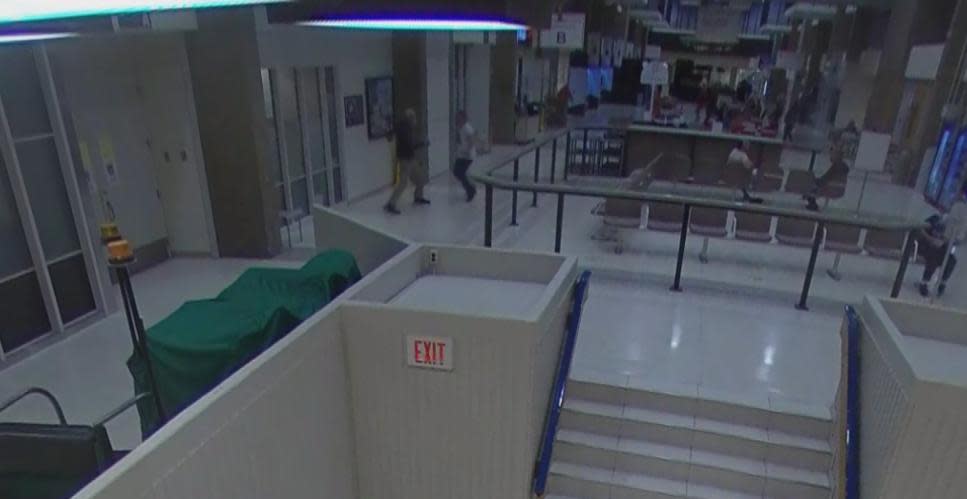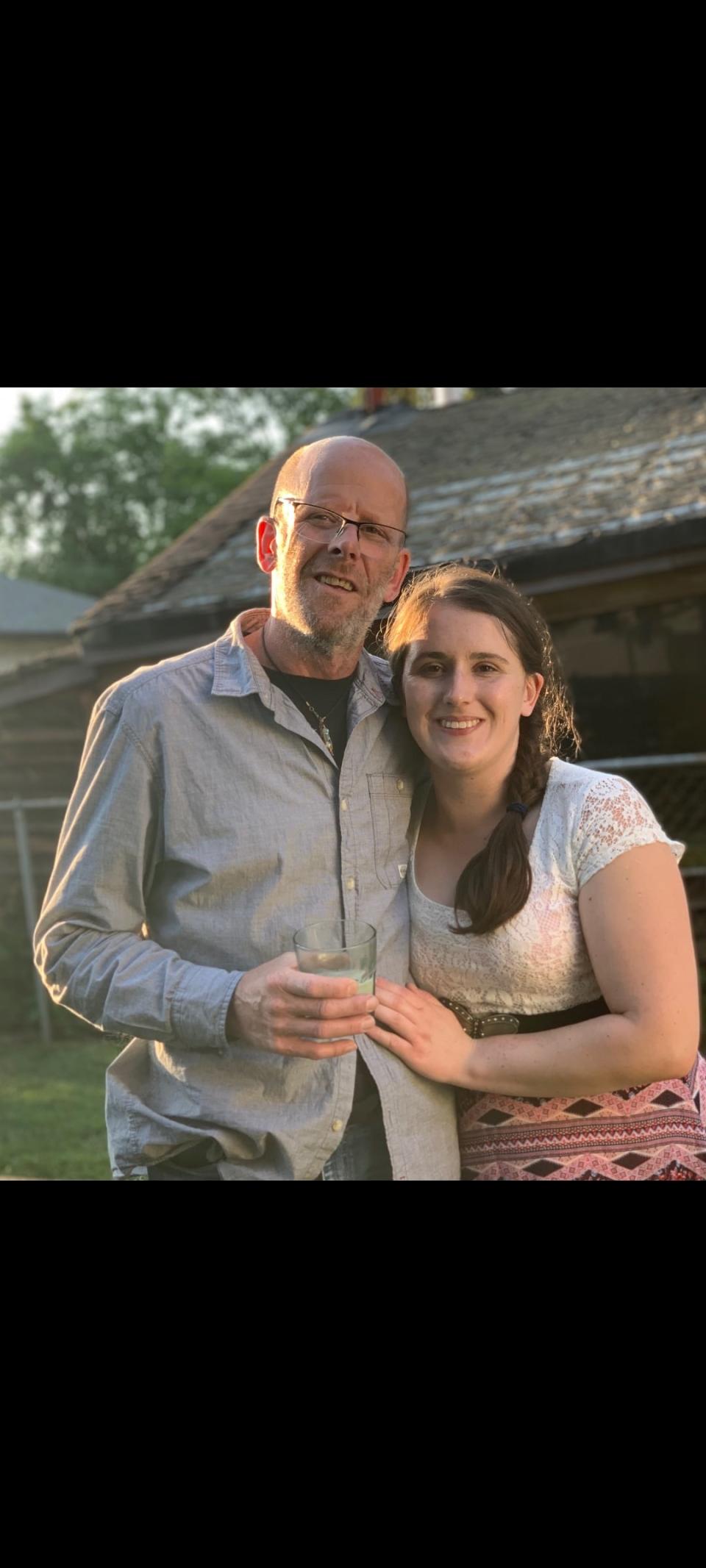2 worlds collide in case of crystal meth-fuelled fatal screwdriver attack inside Saskatoon hospital

Warning: this story contains details of homicide, abuse and negligence.
Kevin Witchekan was high and hunting for drugs when he spotted Randy Beauchesne sitting at a table in the cafeteria at Royal University Hospital.
It was just after 8 p.m. CST on a Monday night in June 2022. Beauchesne, a 55-year-old grandfather, had come to the hospital with his daughter Danya for a medical appointment and was waiting in a heavily travelled area that runs through the centre of the hospital complex.
It's not known why Witchekan attacked Beauchesne. The two men had never met. Witchekan, a 41-year-old homeless man, abruptly changed his plea to guilty this week on the third day of his second-degree murder trial, so will not be testifying and cross-examined on motive.
An agreed statement of facts submitted at the start of the trial said, "Randall Beauchesne was not a drug dealer with the nickname or alias of 'Covid,'" lending credence to the police theory that it was a case of mistaken identity, but this suggestion was not included in a second set of agreed facts read at sentencing.
What is clear is that, on that spring evening, worlds collided with bloody consequences.
"Randy Beauchesne's death is a tragic, senseless loss," said prosecutor Melodi Kujawa at sentencing.
"But Kevin Witchekan's family is also losing their father. They have done nothing to deserve this pain."
Violent video
Witchekan's trial began at Court of King's Bench on Jan. 29 with a voir dire, or trial within a trial, before Justice Heather MacMillan-Brown.
Defence lawyer Chris Murphy, and prosecutors Melodi Kujawa and Lee Hnatiuk, called witnesses and made submissions for two days, with MacMillan-Brown intending to rule what could be included in the trial proper.
The central issue was whether statements Witchekan made to police after the attack were made voluntarily. He had told officers that he injected crystal meth before coming to the hospital and had a screwdriver because he planned on using it to steal drugs.
One of the first submissions was video from a hospital security camera that showed the attack.
Witchekan is seen confronting Beauchesne, who stands and then begins backing away as the shorter, stockier man advances. Beauchesne tries kicking at his assailant to create distance but he is forced into a corner between a wall and a pillar.
Witchekan can be seen swinging his arm at the older man, who staggers back into view from behind the pillar before collapsing on the tile floor. The attack is ferocious, and over in seconds. Beauchesne had been stabbed three times in the head with the flathead screwdriver.
Security guards are shown rushing to help Beauchesne. Witchekan walks away without turning, and then kneels and laces his fingers behind his head.
Bodycam footage from the first officers on the scene shows Witchekan pinned to the floor and handcuffed. In the footage, Witchekan is largely co-operative and coherent in the hospital, laughing as he's walked out in handcuffs and yelling at bystanders, "See you all later … in about 24 years."
His demeanour changes dramatically when left alone in the back of the cruiser.
For at least 30 minutes he is seen screaming profanities, yelling incoherently, and repeating "Marco" and "Polo" in a call and response. He screams at the radio in the front seat, before yelling at himself, "Stop talking to yourself, you motherf---ing baby."
When one of the officers returns, Witchekan asks, "Is that young gentleman going to survive?" before laughing loudly.
Beauchesne survived the initial assault, but his injuries proved catastrophic. Two months later, on Aug. 6, 2022, his family took him off life support and he died. Witchekan's initial aggravated assault charges were upgraded to second-degree murder.
A killer's story
Lawyer Chris Murphy detailed Witchekan's difficult background during sentencing.
Born in Prince Albert to alcoholic parents, he moved to the Big River First Nation when he was three years old. Murphy said that Witchekan was left unsupervised before the age of seven.
The family used a wood burning stove for heat. Witchekan tried to start a fire in the stove using gasoline.
"He essentially blew himself up … and was left with burns to 80 per cent of his body," Murphy said.
"He had 40 skin graft treatments and was put on strong narcotics to quell the pain."
Murphy said Witchekan was in significant, chronic pain through his youth, the skin grafts stretching as his body grew. He was placed in foster care where he was physically and sexually abused, and then he went to day school "where he was hit a lot," Murphy said. He was smoking marijuana by age 10, snorting cocaine by 15 and doing crystal meth by 21.
In 2012, Witchekan and two other men were charged in the death of an Edmonton drug dealer. He was high on cocaine at the time. He was ultimately convicted of manslaughter and sentenced to eight years.
He emerged from prison having lost touch with his family — he has four siblings, and five children of his own — addicted to drugs and living on the streets in Saskatoon.
Murphy said it was "the worst time in his life." This is when Witchekan collided with Randy Beauchesne.
A man of family, trees and the martial arts
Friends of Beauchesne started a GoFundMe page after the attack to help his daughter with rising bills.
"His tenacity has gotten him through 2 different bouts of cancer. The last time was only 2.5 years ago. This episode took a toll on him that he is still trying to physically recuperate from when this atrocity happened. Randy also lost his dear older brother last year," wrote organizer Terri Barnes.
"He was self-employed in the Tree Service and Landscaping Industry for over 35 years. The extent of his injury could cause the end of a career he has loved doing since he was 17."

Randy Beauchesne and his daughter Danya Beauchesne. (Submitted by Danya Beauchesne)
Beauchesne trained for years at Ferrer Martial Arts. His training partners also weighed in on the GoFundMe page.
"He is a fighter who's continued to work through difficult medical challenges even before this attack occurred. He deserves all the help he can get, and we owe it to him. He's been our partner, teacher, guide and cheerleader. And right now, he needs us," they wrote.
His daughter Danya told CBC that nothing about what happened make sense.
They arrived together at the hospital that night. She said her father had stepped away to help an old friend of hers, who was also admitted to hospital, pay for her parking.
He didn't return.
"I tried calling him. I tried texting him and there's no response," she said.
The sentence
A second-degree murder conviction is an automatic life sentence. The variable is when the offender can apply for release. Kujawa, Hnatiuk and Murphy jointly recommended that Witchekan serve at least 10 years before being eligible to apply for parole.
Murphy said the guilty plea was significant, because it was not certain that the prosecutors could have successfully made a case for a second-degree murder conviction. They would have had to prove that Witchekan formed the intent for murder, and Murphy said it's clear from the police cruiser video that Witchekan was profoundly impaired.
Were they unsuccessful, Witchekan would likely have faced a conviction for the lesser offence of manslaughter.
"This guilty plea is a significant sign of remorse," Murphy said. "He's not making any excuses for what he did."
Kujawa added that it's notable Witchekan "took responsibility for the higher offence."
"It gives certainty for the family, and public," she said.
"He will be in prison for at least 10 years, and then under supervision. Establishing intent had been a live issue."
Justice MacMillan-Brown ultimately accepted the sentencing recommendation, but with some reservations.
Given that Witchekan had recently served a sentence for manslaughter in a federal prison, with access to programming and supports, and then killed an innocent man shortly after his release, MacMillan-Brown expressed "a degree of skepticism on his rehabilitative prospects."
Witchekan took the opportunity to speak to Beauchesne's family in court after MacMillan-Brown passed sentence.
"I'm sorry from the bottom of my heart," he said, his voice cracking.
"I'm sorry."


